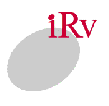Participation of persons with spinal cord injury in the
rehabilitation research programme of ZonMw


Tineke Abma, PhD (Project leader)
Leontine van de Ven, MsC (Researcher)
Elise Adriaanse (Dwarslaesie
Organisatie Nederland (DON))
Guy Widdershoven, PhD
Background
The research programme called ‘Restoration of mobility in the rehabilitation of individuals with spinal cord injury’, which is financed by ZonMw, consists of research on treatment of individuals with spinal cord injury. The purpose is to optimise functioning of these people and to prevent readmission into the rehabilitation centre. The Dwarslaesie Organisatie Nederland (a patient association) evaluates the relative significance of research topics differently from other stakeholders (ZonMw and researchers) within the programme.
ZonMw wants research to fit in with the needs and wishes of people with spinal cord injury. To achieve this, research topics identified by Dwarslaesie Organisatie Nederland must be introduced into the programme. To evaluate whether these topis can be introduced interaction and debate is necessary between the stakeholders. This is not uncomplicated. Each stakeholder has its own perspective and speaks a different ‘language’. Besides that at this moment it is not clear which research topics Dwarslaesie Organisatie Nederland distinguishes. Moreover a method to identity and prioritise research topics in a patient association does not exist. The purpose of this project is to develop such a method and to translate between the different stakeholders.
Methods
This project uses the responsive evaluation method to obtain results. Central to this kind of research are processes of giving meaning to situations and the development of new perspectives on given situations (Abma, 2001). A research method is responsive when the perspectives of all stakeholders in a given situation are taken into account (Abma, 1997). The idea behind the method is that knowledge based on personal experience directs a persons actions and thoughts. A person changes by adding new (replacing) experiences to earlier experiences (Abma, 1997; Widdershoven, 2001). The purpose of a responsive evaluation method is to promote mutual understanding of a given situation by priming a debate between the stakeholders. At the end of the process all stakeholders will have changed their perspective on the situation due to the new experiences they have had (Abma, 1997). The product of a responsive method is an agenda for negation which is formulated by mutual agreement (Guba & Lincoln, 1989; Abma, 1997).
Expected outcomes
Researchers and persons with spinal cord injury are confronted with each others point of view on the relevance of research topics. The aim is to get stakeholders closer together. This must lead to a list of research topics that are evaluated as relevant by all the stakeholders in the research programme.
Where enduring disagreement exists on relevance of topics, backgrounds of this disagreement will be explored and made clear. A method for involving persons with spinal cord injury in the programming of research in the future will be developed. It will be a method that is supported by persons with spinal cord injury, researchers in the programme and ZonMw.
|
|
|
 |